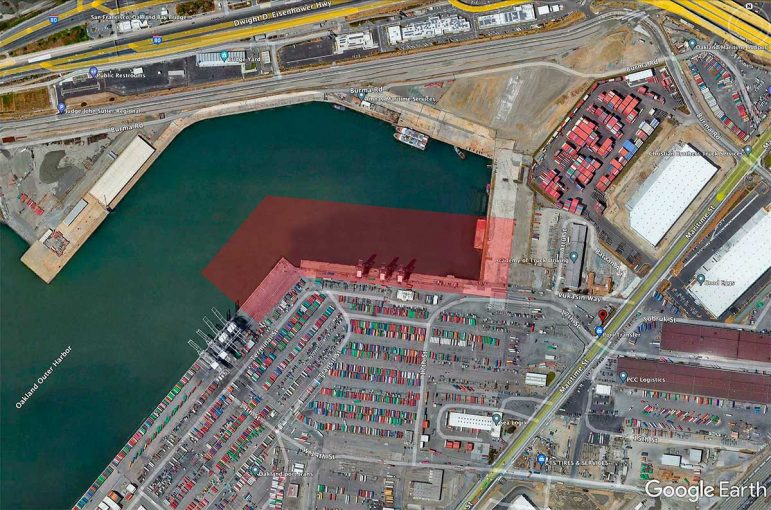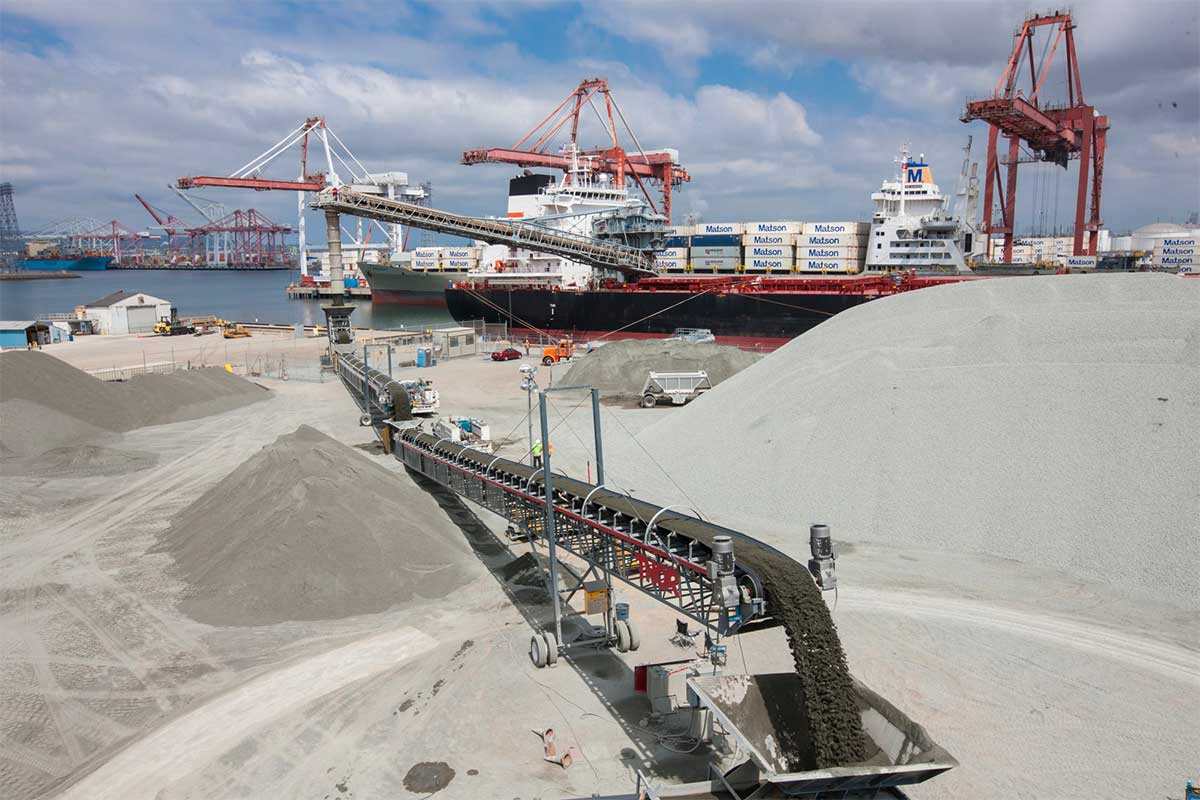Commissioners for the Port of Oakland have approved a project that opponents say will likely pollute West Oakland air even more.
Commissioners voted 5-0 on Feb. 24 to approve the Eagle Rock Aggregates project, in which Port land will be used to store sand and gravel to make concrete for Bay Area construction projects.
Voting in favor were commission president Andreas Cluver, second vice president Yui Hay Lee, and commissioners Cestra “Ces” Butner, Arabella Martinez, and Joan Story. Commissioner Michael Colbruno recused himself and first vice president Barbara Leslie was excused.
Following the vote, a group that wants cleaner air for West Oakland said it expects to file a lawsuit against the Port. That group is the West Oakland Environmental Indicators Project.
“We at the West Oakland Environmental Indicators Project (WOEIP) are disappointed, to say the least, that the Port of Oakland commissioners have voted in favor of the Eagle Rock Aggregates rock and gravel facility,” said Margaret Gordon, co-executive director for the project. “This project would pose a clear threat to public health.”
Gordon called the decision by Port commissioners short-sighted and something that puts profits over public health. The group is exploring its legal options under the California Environmental Quality Act.
The Port will be compensated a minimum of $4.7 million a year on average in fixed rent or $56.2 million during the initial 12-year lease period. Total Port revenue in 2021 was about $403 million and expenses were about $350 million.
“This is all about the profit,” said Brian Beveridge, co-executive director with Gordon on the Indicators Project.
In a report for the project, Port staff said growing net revenues is a goal and objective of this project.
Eagle Rock Aggregates is a subsidiary of Polaris Materials Corporation, which is a subsidiary of U.S. Concrete. U.S. Concrete was purchased last year by Vulcan Materials Company, based in Birmingham, Alabama.
“This project will be a valuable asset to the region supporting the delivery of high quality concrete aggregates for use in the local housing and infrastructure markets,” said Keven Wasylyshyn, spokesman for Polaris Materials.
“Our project includes numerous environmental measures that go above and beyond requirements setting a new, greener standard for this type of operation,” Wasylyshyn said. “We anticipate construction to begin by the end of 2022 and hope to start operations in 2024 or earlier if possible.”
Gordon said she and others have been talking with the Port for three years about this project. But none of the Port commissioners have been at the table.

The Port wants to be good neighbors, Beveridge said. But the approval Thursday evening “is really contrary to what they say.”
“We don’t rush to litigate,” Beveridge said of the Indicators Project. “We usually try to work in collaboration.”
“We don’t relish suing the Port,” he said.
Beveridge added that the only job for local residents will be an internship, which is temporary.
Beveridge argued that the Port is justifying the sand and gravel project on economic development grounds.
Beveridge said of West Oakland, “We don’t get any economic development. We just get pollution.”
He also argued that the Port isn’t accountable to the public.
Port spokesman Robert Bernardo said the Port is an independent department of the city of Oakland, but it does not use tax dollars like other city departments.
Instead, it relies on income from its operation of Oakland International Airport, the Port and real estate.
